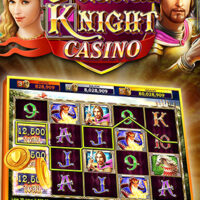Seize the Ascent Elevate Your Game & Predict Peak Multipliers with an aviator predictor Before the F
- Seize the Ascent: Elevate Your Game & Predict Peak Multipliers with an aviator predictor Before the Fall.
- Understanding the Crash Game Mechanic
- The Psychology of Risk and Reward
- The Gambler’s Fallacy and Crash Games
- Strategies for Playing Crash Games
- The Role of an Aviator Predictor
- Limitations and Responsible Use of Predictors
- Navigating the Risks and Ensuring Responsible Gameplay
Seize the Ascent: Elevate Your Game & Predict Peak Multipliers with an aviator predictor Before the Fall.
The allure of quick gains and the thrill of risk have always captivated people, and modern online casinos offer a streamlined way to experience these sensations. One game that has rapidly gained popularity due to its simple yet engaging mechanics is the ‘crash’ game. This type of game centers around a rising multiplier, and players must decide when to cash out before the multiplier ‘crashes’. A crucial tool for some players navigating this volatile landscape is an aviator predictor, designed to analyze patterns and potentially improve decision-making. Understanding the dynamics of these games, and the role prediction tools play, is key to enjoying the experience responsibly.
This article delves into the world of crash games, exploring their core mechanics, the psychology behind them, and the strategies players employ to enhance their chances of success. We’ll also examine the functionality and limitations of an aviator predictor, emphasizing that while these tools can offer valuable insights, they are not foolproof guarantees of profit. Responsible gambling and a clear understanding of the risks involved remain paramount.
Understanding the Crash Game Mechanic
At the heart of a crash game lies a simple premise: a multiplier starts at 1x and steadily increases over time. Players place a bet and watch as the multiplier climbs, offering the potential for exponentially higher payouts. However, the multiplier can ‘crash’ at any moment, resulting in the loss of the bet. The challenge – and the excitement – lies in timing the cash-out perfectly to maximize winnings before the inevitable crash occurs. The games are often visually engaging with themes like an airplane taking off, adding to the suspense. The Random Number Generator (RNG) is the core of these games.
| 1.5x | $15 | 10% |
| 2x | $20 | 8% |
| 3x | $30 | 6% |
| 5x | $50 | 4% |
| 10x | $100 | 1% |
The Psychology of Risk and Reward
The appeal of crash games stems from a potent combination of psychological factors. The increasing multiplier creates a sense of anticipation and excitement, triggering the brain’s reward system. The potential for large wins, even with relatively small bets, can be incredibly enticing. However, this allure is coupled with the risk of losing the entire wager, creating a thrilling tension that many players find addictive. The ‘near miss’ – when a player cashes out just before a particularly high multiplier – can further fuel the desire to continue playing, often leading to chasing losses.
The Gambler’s Fallacy and Crash Games
A common cognitive bias that affects players of crash games is the gambler’s fallacy – the belief that past events influence future outcomes in a random system. Players might feel that a crash is ‘due’ after a long period of increasing multipliers, or that they are ‘owed’ a win after a series of losses. This is, of course, incorrect, as each round of a crash game is independent of previous rounds, and the RNG ensures randomness. A core component in understanding these games is removing all emotion from the game and treating it objectively.
Strategies for Playing Crash Games
While there is no surefire strategy for consistently winning at crash games, players employ a variety of techniques to manage risk and potentially improve their odds. One popular approach is setting a target multiplier – a predetermined point at which they will always cash out, regardless of the current multiplier. Another strategy is using ‘auto cash-out’ features, which automatically cash out the bet at a specified multiplier. A more aggressive approach involves increasing the bet size after each loss, in an attempt to recover losses quickly – but this carries significant risk.
- Fixed Percentage Cash-Out: Regularly withdraw a set percentage of earned funds.
- Martingale System (Caution): Double the bet after each loss – highly risky.
- D’Alembert System: Increase the bet by one unit after a loss, decrease by one unit after a win.
- Target Multiplier Strategy: Cash out at a specific multiplier, even if it’s low.
The Role of an Aviator Predictor
The rapid rise in popularity of crash games has led to the development of tools intended to assist players, most notably the aviator predictor. These tools typically analyze historical game data, looking for patterns or trends that might indicate when the multiplier is likely to crash. Some predictors use statistical algorithms, while others employ machine learning techniques to identify potentially predictive signals. It’s vital to remember that the predictions are inherently probabilistic rather than deterministic. An aviator predictor analyzes past data and predicts based on algorithms.
- Data Collection
- Pattern Recognition
- Statistical Analysis
- Probabilistic Prediction
- Risk Assessment
Limitations and Responsible Use of Predictors
It’s crucial to understand that an aviator predictor is not a guaranteed path to riches. Crash games are ultimately based on chance, governed by a Random Number Generator (RNG). While these tools can identify potential patterns, they cannot predict the future with certainty. Relying solely on an aviator predictor can lead to overconfidence and reckless betting. Players should use these tools as one part of a broader strategy, combining them with responsible bankroll management and a clear understanding of the risks involved. Furthermore, not all predictors are created equal, and some may be scams designed to exploit players.
Navigating the Risks and Ensuring Responsible Gameplay
Playing crash games should always be viewed as a form of entertainment, not a way to make money. It’s essential to set a budget and stick to it, avoiding the temptation to chase losses. Never bet more than you can afford to lose, and be aware of the signs of problem gambling. If you find yourself spending excessive amounts of time or money on crash games, or if they are negatively impacting your life, seek help from a gambling addiction support organization. Remember the thrill should come from the entertainment, and not the monetary aspect. The aviator predictor shouldn’t be solely relied on.
Ultimately, the key to enjoying crash games lies in responsible gameplay, a clear understanding of the risks, and a realistic expectation of outcomes. While tools like an aviator predictor can offer valuable insights, they should be used cautiously and as part of a well-rounded strategy. The volatile nature of these games demands discipline, awareness, and a healthy dose of skepticism.






